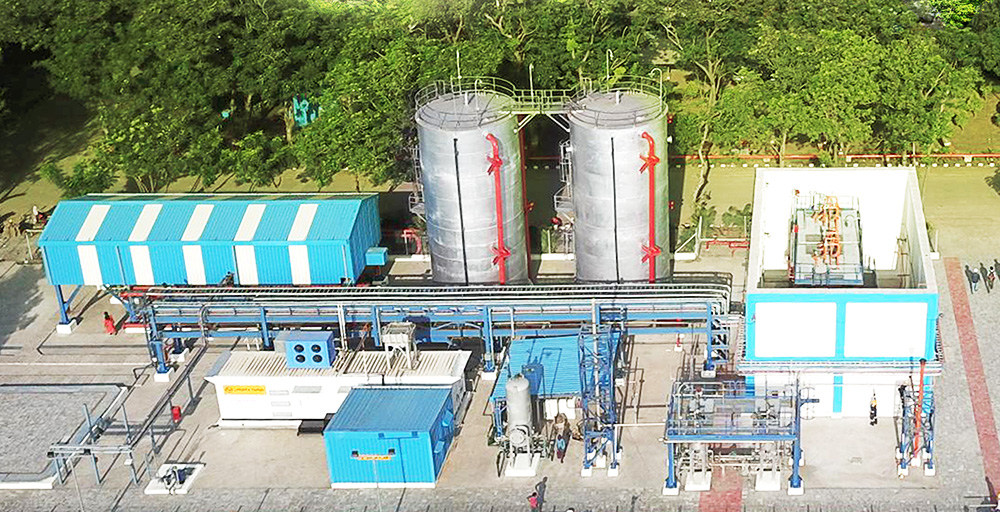Industries play a crucial role in India’s economy, contributing 25% to the nation’s gross value addition (GVA) in 2019. However, these are also a significant source of carbon emissions, releasing 30% of India’s total emissions.
An expert note by WRI India highlights key strategies for making industries cleaner and more sustainable. The note, Pathways to Net Zero: Policies and Measures for Industrial Decarbonization in India, stresses on the need for early action, innovative policies, and targeted investments to align industrial growth with India’s net-zero goal. It states that without additional decarbonization policies, industrial emissions could nearly triple by 2050.
The expert note examines emission reduction measures through a long-term decarbonization (LTD) scenario aligned with India’s net zero target. Using the India Energy Policy Simulator (EPS), WRI India projects that industrial emissions could be reduced by 65% in 2050 compared to a reference scenario without additional policies. Cumulative emissions could decline by 29,388 Million Metric Tonnes CO2 equivalent (MMtCO2e) between 2020 and 2050 through the following critical interventions:
- Industrial electrification and hydrogen mandate: Replacing fossil fuels with electrification and hydrogen from 2025 onwards, reaching 50% substitution by 2050. This measure could cut emissions by 12,367 MMtCO2e, accounting for 42% of reductions.
- Industrial energy efficiency: An annual 1.3% improvement in specific energy consumption could lower emissions by 4,606 MMtCO2e (16%).
- Material efficiency mandates: Promoting recycling and extending product lifespans in cement and steel industries could reduce emissions by 3,546 MMtCO2e (12%).
- Carbon pricing: Implementing a carbon price that rises from $4 per tonne of CO2 in 2019 to $50 per tonne by 2050 could result in a reduction of 2,945 MMtCO2e (10%).
Carbon capture and storage: A necessary step
Despite these measures, fossil fuels are projected to still account for almost 50% of industrial fuel demand in 2050. The note emphasizes the importance of Carbon Capture, Utilization, and Storage (CCUS) to mitigate residual emissions, especially from cement and chemical industries. However, challenges such as high capital costs, limited geological storage data, and insufficient infrastructure must be addressed to make CCUS viable.
Policy recommendations
The expert note provides six key recommendations to accelerate industrial decarbonization in India:
- Support low-carbon technologies: Investment in green hydrogen and CCUS is essential. Infrastructure for storage and transportation, as well as financial mechanisms like sovereign green bonds and blended finance, should be explored.
- Scale up demand-side policies: Policies promoting material efficiency and circular economy initiatives, such as the National Circular Economy Roadmap and Construction and Demolition Waste Management (CDWM), need robust implementation.
- Incentivize MSME decarbonization: Micro, small, and medium enterprises (MSMEs) face financial barriers in adopting low-carbon technologies. Expanding access to credit guarantee schemes and public financing mechanisms is crucial.
- Promote indigenous manufacturing: Domestic production of low-carbon technology components, including electrolyzers and solar PVs, will reduce import dependency and create green jobs.
- Strengthen research and development: Targeted R&D investments will be required to scale emerging technologies.
- Develop a skilled workforce: Training and reskilling workers will be necessary to support the transition to low-carbon industries, with a focus on gender-inclusive workforce strategies.
Call for decisive action
Speaking at the launch, Ashwini Hingne, Associate Director at WRI India, said, “India’s industrial sector is at a crossroads. Decarbonization presents a major opportunity to drive economic growth, create jobs, and strengthen India’s position in global markets. This expert note offers a clear roadmap for how policymakers, industry leaders, and financial institutions can work together to accelerate this transition.”
The expert note underscores the urgency of industrial decarbonization to align with India’s long-term climate commitments. With strategic interventions, policy support, and technological advancements, the industrial sector can transition toward a sustainable future while maintaining economic growth and global competitiveness.
This content is protected by copyright and may not be reused. If you want to cooperate with us and would like to reuse some of our content, please contact: editors@pv-magazine.com.









By submitting this form you agree to pv magazine using your data for the purposes of publishing your comment.
Your personal data will only be disclosed or otherwise transmitted to third parties for the purposes of spam filtering or if this is necessary for technical maintenance of the website. Any other transfer to third parties will not take place unless this is justified on the basis of applicable data protection regulations or if pv magazine is legally obliged to do so.
You may revoke this consent at any time with effect for the future, in which case your personal data will be deleted immediately. Otherwise, your data will be deleted if pv magazine has processed your request or the purpose of data storage is fulfilled.
Further information on data privacy can be found in our Data Protection Policy.